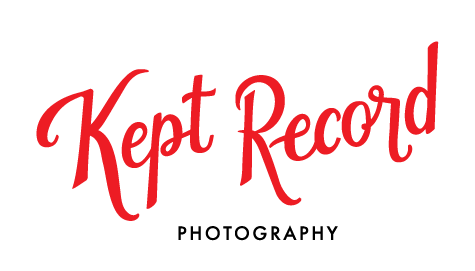An Anxiety Toolbelt in the Time of COVID-19
Tips for Dealing With Anxiety in COVID-19
This is a weird, funky time we’re living in and MAN, does it come with a rollercoaster of emotions! For me, it seems to come in waves by the week; good weeks/bad weeks, productive weeks/slow weeks. For a lot of people, there’s a lot of overwhelm, confusion, and general bad feelings floating around. Myself included! I am truthfully very positive and optimistic about the state of the world, and I have so much faith in humanity and science - but don’t be misled: it is NOT all sunshines and rainbows around here. I wanted to talk about Anxiety because I know that while most people have experienced at some time or another in their lives, many are experiencing it on a more consistent level than ever before. Please note before reading further - I am not a doctor! These notes are from my personal experiences only. Also, in case you are feeling extreme mental distress, please contact a medical professional or contact the emergency hotline.
A little bit of background: as a kid, I was always being told I was “too sensitive.” Fast forward to around 9th grade, and I had my first panic attach. Followed by another… then another, and another, and another. They were becoming more frequent and more intense - but what I hadn’t really noticed was that at the same time, my general level of anxiety/sensitivity was increasing too. In those few years I experienced a lot of loss (my great-grandmother, my childhood dog, my step-grandparents), life transitions like moving from my childhood home into an apartment, and a really intense car accident. I found myself jumping every time someone spoke too loud, a locker door slammed, or a car next to ours drove a little too close/fast/slow. An unintentional glance from a teacher would have me worried that I was failing, and the thought of reading a paper aloud in class literally made my eyes well up with tears.
Between panic attacks and feeling generally anxious, I eventually was diagnosed with Generalized Anxiety Disorder and Panic Attack Disorder. I’m sharing this with you now because the effects of COVID are reaching far beyond those physically affected by the virus; countless people are now in times of loss, grief, and transition. There is so much unknown, and our nervous systems don’t exactly know how to respond. So I wanted to share with you some things that help me manage my anxiety day-to-day. It takes a really long time to rewire existing thought patterns, so if you don’t feel an immediate change, that doesn’t mean you’re doing anything wrong. I consider all of these things to be tools in the mental-health toolbelt. Some days you may need allllll the tools. Some days you just need one. You don’t necessarily use every tool the same amount as the others! They’re not children or puppies- it’s okay to have favorites.
Let’s start with the most controversial: therapy and prescription medication. I don’t believe there is a 100% right or wrong way to treat anxiety, but I do believe that therapy and medication work for many people. I have personally been on medication for anxiety at certain parts of my life, although I haven’t been for a few years. I’ve also participated in therapy, which I find immensely beneficial for anyone looking to improve their self awareness and mental health. Prescription medication can be really helpful for people, but for many (like my experience) it’s a lot of trial and error of finding the right combination/dosages. For some people, it can be the tool that just gets them through a season; for others, it is a long-term solution for managing their mental health. There’s nothing wrong about either! I attend therapy weekly or every other week and it’s been really effective in recognizing thought patterns I want to change and challenging the neural highways that have been carved into my behaviors and beliefs.
So, together with therapy, I embark on my mental health handy-woman work with these tools: exercise, meditation, education time, connecting with others, monitoring my social media usage, doing physically creative work (baking), reading before bed, grounding exercises, gratitude, affirmations, and goal-setting. I’ll go into those each more in depth here-
Exercise: I truly believe in moving your body for at least 20 minutes a day. Thanks to the fact that I have two huskies, this is no problem for me! Lucy and Pepper ensure I walk at least a mile (usually 3) before 9 A.M. Even if I start my walk hating the idea of it, usually within a few blocks I’m feeling much better. It takes at least ten minutes before the endorphins begin releasing, so try committing to just a short walk in the morning if you’re just getting started!
Meditation: I’ve been using the Headspace Plus app and it has been SO helpful. I use the guided meditations a few times a week in the mornings after exercising, but I use it almost daily for my night-time wind down. Because my anxiety likes to really crank it up a notch when I’m trying to fall asleep, the “Sleepcasts” are especially helpful. For two free weeks of Headspace Plus click here (I am not an affiliate for Headspace, this is not an ad, this is just an app I really believe in)
Education time: Every single day I listen to a podcast, read a book, or watch a video from a course I’m currently enrolled in. They help me feel inspired + proactive (which feel much different than anxiety!)
Connection + Social Media Usage: I try to manage my social media usage - I use an app called StayFocused that allows you to block certain apps for overall time (1 hour a day for instance) or certain blocks of time (like 8am-1pm). I don’t get on social media for one hour after waking up, or one hour before bed, so that I have a buffer time each day. When I am on social media, I try to actively connect with others instead of mindlessly scrolling - really trying to foster relationships! StayFocusd is a chrome extension as well which you can find here.
Physical Creative Work: I LOVE my computer - it is custom and badass and beautiful (thanks to my husband who loves to build custom computers!). But there is something super powerful about creating something with your own hands! For me, that’s baking. It could be ceramics, drawing, gardening, painting, candle-making - the point is to get out of our head and into your body! It’s a great way to connect with yourself.
Reading: As I mentioned above, I struggle with sleep! Before bed, I try to read at least two pages of a book. If it’s a business book, I risk of getting too interested and end up staying awake. I try to pick older novels that are a little slower - Wuthering Heights, Sense and Sensibility, Oliver Twist, etc. Then I listen to my Headspace Sleepcast! I know, it’s a lot. I wish it was easier. For a list of some of my recent reads view this blog post!
Grounding exercises: The 5-4-3-2-1 Grounding Exercise is when you “ground” yourself in the present moment by engaging all of your senses. This has been a helpful tool for me for a really long time now. You can do it still or while walking - start by thinking of 5 things you see (birds, blue sky, cars, dogs, houses). Then, think of 4 things you feel (my wind-breaker, the leash in my hand, my Tevas on the sidewalk, the sun on my face). Hearing is next (squirrels in the tree above, a dog barking in the distance, Lucy and Pepper’s paws clicking as they walk). Then smell (the neighbor’s roses, fresh-cut grass). And finally, taste (my morning coffee!). Each step of this engages your mind in an active way that forces you to analyze your current surroundings instead of in anxiety. For more information on this exercise and other grounding exercises view this Doctor’s post on 7 ways to quickly calm down.
Gratitude: I think this goes without saying, but gratitude is SO IMPORTANT. I’m trying to be better about writing down my gratitude instead of just thinking it, but often when I’m frustrated about something totally unrelated, I’ll text my husband something like “I love you so freaking much and I’m so grateful for everything you do” followed by a bunch of heart emojis. Whenever you can, lean into gratitude because it is really hard to feel anxious when you’re acknowledging “OMG I HAVE A ROOF OVER MY HEAD AND MY PARTNER IS MY BEST FRIEND AND MY DOGS ARE INCREDIBLE CUDDLY AND I HAVE ALL THESE AMAZING BOOKS TO READ LOADED ONTO A DEVICE THAT FITS IN MY FREAKING HAND WHAT A TIME TO BE ALIVE.”
Affirmations: I’m not a fan of posting sticky notes with affirmations alllll around my house, but I do have a few affirmations that I’ll post! My favorites are: “You are exactly where you are meant to be.” and “I deserve to be known. I deserve to be loved. I deserve to be whole.”
Goal-setting: I highly recommend taking down your 2020 goals from January and tucking them away. Then, look at the next 2-3 months. IF everything stays the same as it is right now, what kind of goals can you set? For me, that looks less like days filled with golden hour adventure shoots, and more like watching and implementing a business course. This is also a great time to evaluate those goals you’re setting for the long-term. If your goal is to become a successful photographer, really dig into that! If your long-term goal is to run a marathon, dig deeper! Some business experts recommend something called “seven layers deep,” (video linked here) which can be applied to any goal you set, personal or professional. Knowing WHY you’re driven to accomplish something helps you stay the course when things get rocky.
This may feel like a lot of information, but I want to emphasize: changing your mental health is NOT a short game like installing a new outlet cover. This is a long game, like an entire home renovation! If you’re suffering anxiety on a really consistent basis, it can take time to break down old walls and build new ones. I suggest starting with a few of the things above at a time, like exercise, grounding exercises, and gratitude practices. Some of these things, like meditation, feel really weird and challenging to start. That’s normal! Stick with it for a while before deciding to jump ship. That being said, everyone’s mental health plan is different, and if you feel like something just really isn’t resonating with you, don’t force it! There are so many ways to improve your mental wellness and you can build a solution that’s perfect for you.
Also, please know you’re not alone! While I do feel 99% like my anxiety has become more manageable with these tools, that doesn’t mean I am “cured.” Mental health is a lifelong journey for everyone. So many people suffer from anxiety and truly, there’s nothing wrong with you. Or at least, if there is something wrong with you, I guess that means there’s something wrong with me too, in which case - you’re still not alone.
Okay, that’s it. I love you. Bye.



